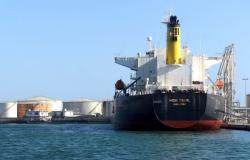Eleven years after two deadly cases of corporate negligence in Bangladesh – the Rana Plaza collapse and the Tazreen Fashions factory fire – textile workers have suffered permanent after-effects when assembling clothes sold by the world’s biggest fashion brands have still not received justice. Furthermore, workplace safety for most Bangladeshi workers remains a distant dream. In recent years, during the fires at the BM Container Depot container warehouse on June 4, 2022 and at the Hashem Foods Factory on July 7, 2021, almost 100 people died due to alleged negligence and non-compliance with safety standards by employers.
Tell me what happened during the Rana Plaza collapse and Tazreen fire in Bangladesh
I still remember April 24, 2013, when an eight-story building, Rana Plaza, collapsed, killing 1,100 workers and injuring 2,600 workers. This building housed numerous factories making clothing for major Western retail brands. I slept comfortably under my duvet, while thousands of workers lay under the rubble, less than an hour from my home. Thousands of people were killed or injured simply because their employers chose to ignore the large structural cracks that appeared on the building and forced them to continue producing clothing while they feared for their lives. It was important to respect the deadlines set by Western buyers.
Rana Plaza collapsed exactly five months after the deadly fire at the Tazreen Fashions factory on November 24, 2012, in which at least 112 workers died and dozens more were injured while they found themselves trapped inside the factory. One survivor told me: “The only way to escape the fire was to jump out of the windows on the upper floors. Look, my nails aren’t growing back, I used them to scratch and managed to get out of the window. » They told me of other permanent after-effects of the fall, while many of their relatives and colleagues perished in the fire before they could escape. Many members of the same family worked together inside the factory.
These two acts of corporate negligence and impunity have highlighted the human cost of unregulated multinational greed and reinforced the need for international standards on business and human rights. I knew then, as I know now, that we need to change this status quo.
These events are usually remembered as disasters or unfortunate tragedies – would you agree? Has accountability progressed since then?
As a Bangladeshi and labor rights activist, it bothers me greatly when the events at Rana Plaza and Tazreen Fashions are portrayed as unfortunate tragedies, because it glosses over the fact that the companies failed to ensure safe working conditions . They must be considered from the perspective of corporate impunity. The lack of accountability after these two terrible events highlighted the disregard for workers’ lives on the part of the factories, but also the high-end brands for whom they worked so hard making clothes. I was even more furious to see Canadian and American courts quickly rejecting compensation claims filed against these brands that had purchased clothing from Rana Plaza factories, on narrow technical grounds.
Separately, a group of local NGOs led by the Bangladesh Legal Aid and Services Trust [1] had filed compensation claims for the Rana Plaza affairs [2] and Tazreen Fashions [3] before the Supreme Court. Ten years later, these requests are still pending. Earlier this year, I was relieved to learn that a hearing date had been set for the Rana Plaza case and worked closely with the legal team to present cases to the court . However, this matter was postponed again.
Have any particular stories stuck in your memory?
I often think of Sokina, a survivor of Tazreen Fashions, who told me her story:
“The doctor told me that as long as I am alive, I will have to seek treatment for my leg, which was broken when I jumped from the fourth floor. The assistance allowance that I received through the fund set up with brand donations disappeared a long time ago, and we have still not received any compensation from my employer. My son is studying in the fifth grade at school and I can’t even afford to buy the books he needs. I have to rely on my elderly mother’s income. I had moved to Dhaka to find work to become economically solvent and now I am plunged into destitution forever. »
It was truly heartbreaking to see her break down while expressing her frustration. I had no words to console her. Sokina and other survivors of Tazreen Fashions still call me from time to time, hoping that I can bring them some words of hope. But I don’t have any more to offer.
More than 10 years after these two terrible events, has workplace safety improved in Bangladesh?
The Bangladesh Accord, a legally binding agreement between brands, unions and factories, has significantly improved workplace safety for more than two million workers in Bangladesh’s garment industry.
However, I am distressed to see almost daily reports of deaths or injuries in Bangladesh among workers in other non-export-oriented sectors, where workplace safety remains a distant dream. Employers should not wait for pressure from Western buyer brands to ensure safety. I was shocked to meet young people employed by the shipyard and construction industries who have had their lives completely turned upside down since becoming permanently disabled. Equally heartbreaking were my meetings with the families of those who died at their workplace. Given that the price of a deceased worker in Bangladesh is less than 2,000 euros, this provides little incentive for organizations seeking to maximize unregulated profits to invest in workplace safety.
According to estimates [4] According to the Safety and Rights Society, 5,608 workers died between 2013 and 2023 [5] – not counting the number of deaths from the Rana Plaza collapse. Therefore, even based on this conservative estimate, at least one worker dies every day on average in mostly preventable workplace “accidents” in Bangladesh since Rana Plaza.
What do you mean by this sentence: the price of a deceased worker in Bangladesh “is less than 2,000 euros”?
Under Bangladeshi labor law, employers are only required to pay 250,000 Bangladeshi takas (1,960 euros) for workers permanently injured in an “industrial accident” at their workplace. For those killed at work, the amount of compensation payable to those in their care is even lower: 200,000 Bangladeshi takas (1,570 euros). When I began researching labor rights, I was shocked to see how little value was placed on a worker’s life by the very law that purported to “guarantee labor rights.” .
Despite this arbitrary limit on the amount of compensation, I noted, from my analysis [6] cases brought before the employment tribunals, that employers often refuse to pay this very modest sum. An employment tribunal lawyer told me the strategy is to “wear workers down until they no longer have the energy to pursue the case.” These employers would rather spend more money to drag out a case, rather than pay modest compensation, simply because the worker had the audacity to sue them.” Even when compensation is awarded after a lengthy trial, companies rarely implement the court’s decision and do not pay survivors or victims’ families the required compensation.
How to get out of this “culture of impunity”?
Real change can only happen when the real problem is recognized, which is that companies make labor exploitation part of their standard business model.
At Amnesty International, we advocate for corporate responsibility in Bangladesh (including workplace safety for all) through in-depth research and targeted campaigns, including with the United Nations Human Rights Council . Labor justice was at the heart of the human rights charter we published before the last general elections in Bangladesh. One of our key recommendations to the Bangladeshi government is to establish a national database that records every episode in which a worker is killed or maimed due to working conditions. This register must provide details of injuries and deaths occurring in the workplace in a given year, as well as claims for compensation made to all employment tribunals and their outcomes. Additionally, labor laws need to be amended to ensure that victims receive rights-based compensation for workplace accidents (injuries or deaths) that redress the extent of their losses, in line with international standards.
We work closely with partners on the ground fighting for labor rights in Bangladesh, for example by contributing to legal research in the Rana Plaza compensation case before the Supreme Court. We issued a public statement with a series of recommendations to the Bangladeshi government on maintaining labor justice. Recently, we have documented the climate of repression faced by garment workers in the state-sanctioned crackdown on those defending workers’ rights in Bangladesh. We will continue to push for accountability and reforms so that workers can fully exercise all their fundamental rights.







